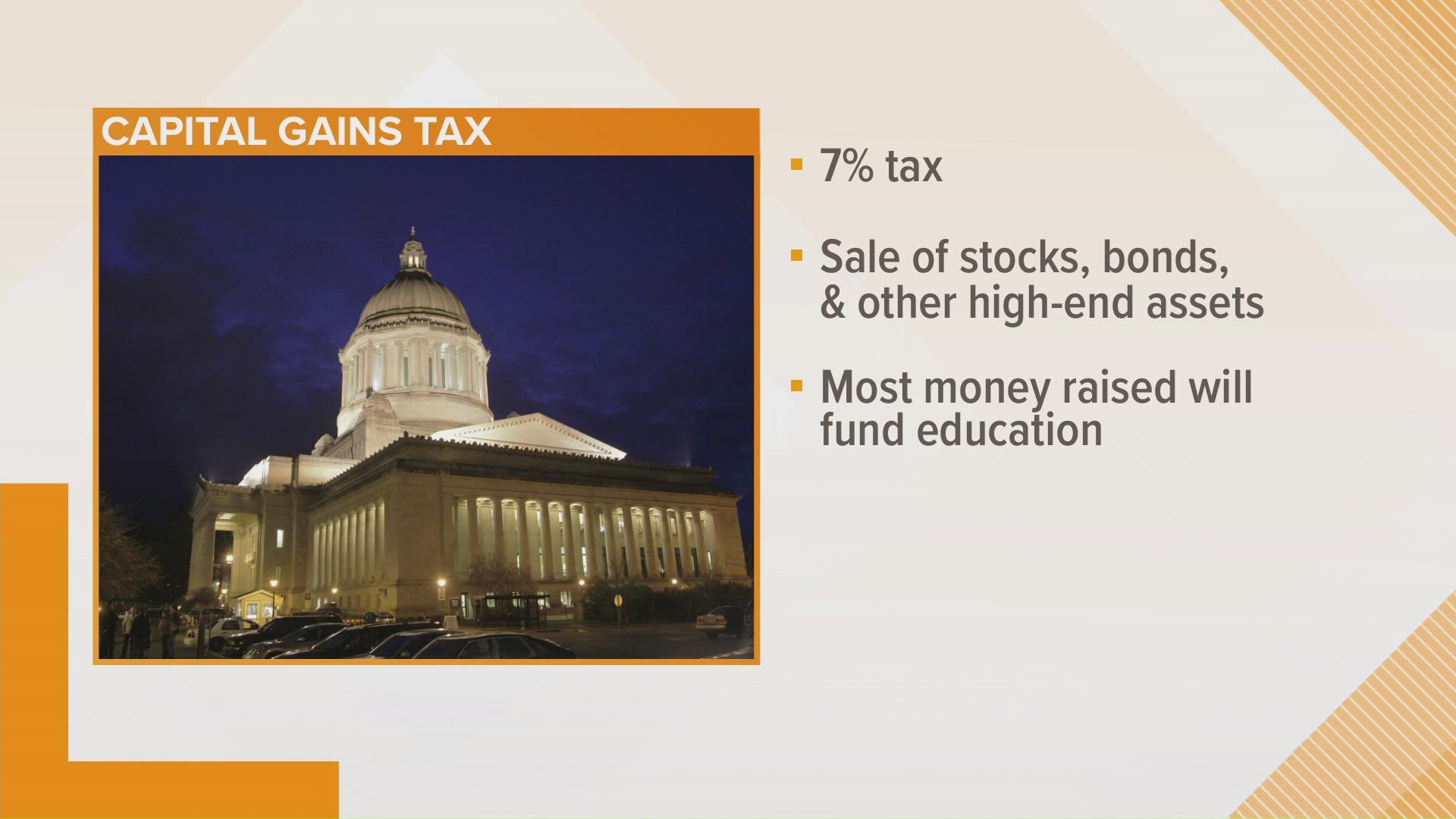OLYMPIA, Wash. — Several new laws went into effect in Washington state on Saturday, Jan. 1, 2022.
From plastic utensils to long term care premiums to voting rights, here are the changes that will impact Washington residents in the new year:
SB 5022: Single-use utensils, condiments and beverage cup lids
Food service businesses may only provide single-use utensils, straws, condiment packaging, and beverage cup lids after customers ask for them in order to reduce single-use product use and waste.
Senior nutrition programs and healthcare providers are exempt. The Department of Corrections and Department of Children, Youth and Families are only required to follow the law “to the extent operationally feasible and practicable,” according to the bill text.
Utensils, straws, condiments and beverage cup lids may be made available to customers using bins, dispensers or other self-service customer options.
The law also sets requirements for the amount of post-consumer recycled content that must be used in certain plastic products sold or distributed in Washington.
SB 5096: Capital Gains Tax
A 7% tax on the sale of stocks, bonds and other high-end assets in excess of $250,000 went into effect on Jan. 1. The tax is expected to bring in $415 million in 2023, which is the first year the state would see money from the tax.
Capital gains are profits made on the sale of non-inventory assets purchased at a lower price than the sale price. Common examples of capital gains include the sale of stocks, bonds, mutual funds, boats, and real estate.
The first $500 million in tax revenue will be deposited into the state's Education Legacy Trust Account to support early learning and childcare programs with the remainder going into the Common School Construction account.
HB 1323: Washington's long-term care tax
Although the Employment Security Department won't collect long-term care premiums from employers until April, some employees will still see 0.58% of every $100 they earn go the Washington Cares Fund beginning in January.
According to governor spokesperson Tara Lee, despite Gov. Jay Inslee's order to delay the law, employers, public and private are still required to collect the premiums from employees’ wages. Under the law, someone making $75,000 a year would pay about $435 a year into the fund.
The fund ensures taxpayers who have contributed for 10 years receive $36,500 over their lifetime to help pay for long-term care needs, like in-home care, nursing home care, hearing aids, trained support for caregivers, home-delivered meals, memory care, necessary home renovations and many other services, according to the WA Cares Fund website.
On Jan. 1, 2022, Washington state's minimum wage increased to $14.49 an hour, up 80 cents from the previous minimum wage of $13.69.
Each year, Washington state's Department of Labor and Industries is required to make a cost-of-living adjustment to the minimum wage based on the Consumer Price Index for Urban Wage Earners and Clerical Workers, compiled by the federal Bureau of Labor Statistics.
The federal Bureau of Labor Statistics attributed the increase to more expensive gas, housing, household furnishings and food.
The state minimum wage applies to workers age 16 and older. Under state law, employers can pay 85% of the minimum wage to workers ages 14-15, according to L&I.
HB 1356: Native American Mascots in Schools
Beginning Jan. 1, public schools in Washington cannot use Native American names, symbols or images as school mascots, logos or team names.
Washington schools with Native American mascots were required to pick a new mascot, logo or team name by Dec. 31. The changes take effect during the 2021-2022 school year.
The Washington Office of Superintendent of Public Instruction is providing grants for schools to pay for changing old mascots. At least 38 schools have self-reported that they would need funding for the mascot changes, according to OSPI.
Representative Debra Lekanoff, a lead sponsor for the bill, is currently working on an amendment to add an extension and funding for schools to implement the law.
HB 1078: Restoring voting rights to those with felonies
The right to vote will be automatically restored to those with felonies as soon as they are released from Department of Corrections custody.
The measure was sponsored by Rep. Tarra Simmons, a Bremerton Democrat who herself was incarcerated before going to law school and being elected to the Washington Legislature last fall.
More than 20,000 people stand to regain their voting rights when the law takes effect.

